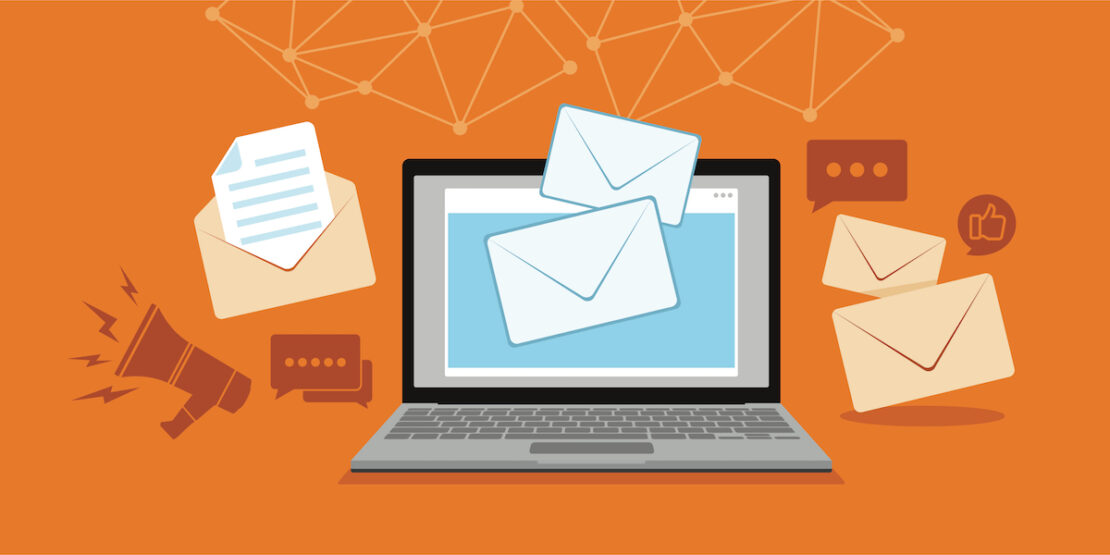Email vs.Telemarketing in B2B: Choosing the Better Option

There is an ongoing debate about the effectiveness of email vs. telemarketing strategies. Some marketers claim neither is effective and advise their clients to use other tools. This may prove true for some businesses based on the industry, the communication preferences of the clients they serve and the way they execute these specific marketing strategies.
In business-to-business companies, both email marketing and telemarketing serve a role in attracting new leads. However, one tool may prove more useful in certain types of businesses than others.
Understanding B2B Telemarketing
Many business executives from a B2C background decide from the onset not to use telemarketing services. This stems from the personal and business experience of call centers sending out robocalls en masse to random customers. Needless to say, the practice results in a low return on investment. It has also been tied to scams and other illegal activities over the past few years.
Telemarketing in a B2B space is far more complex. It requires using segmented data to better target not just specific businesses but their decision-makers. This improves the effectiveness of cold calls, thereby increasing the return on investment.
Understanding Email Marketing
Newsletters and other email-based marketing initiatives enjoy much greater levels of success in both B2B and B2C setups. In fact, Forbes believes it is one of the best ways that businesses can generate leads. In the past, email marketing suffered some association with scammers and spam. However, unsubscribe laws and policies created positive changes.
These gave consumers the power to choose which companies sent them offers and other marketing material. Some companies originally viewed this as a setback. Smart companies understood that it allowed them to hone in on the market that was actually interested in what they had to offer.
Choosing One or the Other
The best approach when it comes to email vs telemarketing strategies is to rely on both. A multifaceted approach to marketing almost always produces better results than focusing on just one option. However, this does not mean a 50-50 split. Companies may still need to identify which of the two works better for them, and thus, which one to focus on.
When To Focus on Telemarketing
Companies that target home businesses and mom-and-pop shops get better results from telemarketing. These business owners may not rely on using email as much as others. Depending on the type of work, they may also not have time to check emails during business hours. However, they do tend to answer the phone.
Sometimes marketers generate leads through networking at events. This may allow them to create some rapport with a potential client who may then expect to hear from them again at a later date. This is an excellent time to call instead of sending an email. Phone calls are more personal, more immediate and may pick up on the positive note the conversation left off on.
When To Focus on Email Marketing
Even when marketers identify the right business executive in an organization, sourcing their contact information can be difficult. Secretaries often ignore cold calls and rarely give out the phone number for a manager or the boss. Email addresses are easier to come by, so this may work better in these instances.
Companies that prefer less intrusive forms of marketing should also consider emails over phone calls. A phone call requires someone to stop what they are doing and provide undivided attention. When that person discovers the call is sales related, the tone of the conversation can change immediately. Emails are less likely to create this reaction, especially when companies pitch services the executive genuinely needs.
Marketing Tips for Emails and Cold Calls
Despite the differences in approaches, both tactics serve the same purpose. This leads to several other similarities that make it possible to apply the same marketing tips regardless of which one a company chooses to specialize in.
Rely on High-Quality Data
Many marketing agencies often receive cold emails and calls from other startup agencies offering their services. This is what happens when people do not complete even basic research about what a company does. Using high-quality data helps good marketers to determine who the best contact candidates are and what services may best tackle their pain points.
Identify Customer Types
There are several different types of customers. Each one responds differently to cold calls and cold emails:
- Friendly: More interested in building a relationship and learning more about the company the agent represents
- Factual: Only interested in specs, pricing and other objective numbers to calculate the value
- Feeling: Want to know how the product or service improves their quality of life
- Objector: Automatically rejects most sales pitches or identifies flaws
Start With Warm Prospects
Forbes notes that more buyers now enter the market in the middle of the sales funnel. They have already completed their research and are eager to purchase the right solution. Buyers at this stage need the best company to offer the right specs at a good price. Selling to these prospects is a lot easier than attempting to sell to cold prospects. Warm candidates also include those that have already expressed an interest in a particular company but be careful not to overwhelm them. Decision fatigue may cause people to shut down.
Get Professional Help
Momentum works with industrial clients to help them decide what marketing strategy is right for them. Email marketing is just one of the digital marketing services provided by the firm. It helps to not just generate leads but also nurture those leads and turn them into referrals. Contact us today for more information on how we can optimize your campaign.